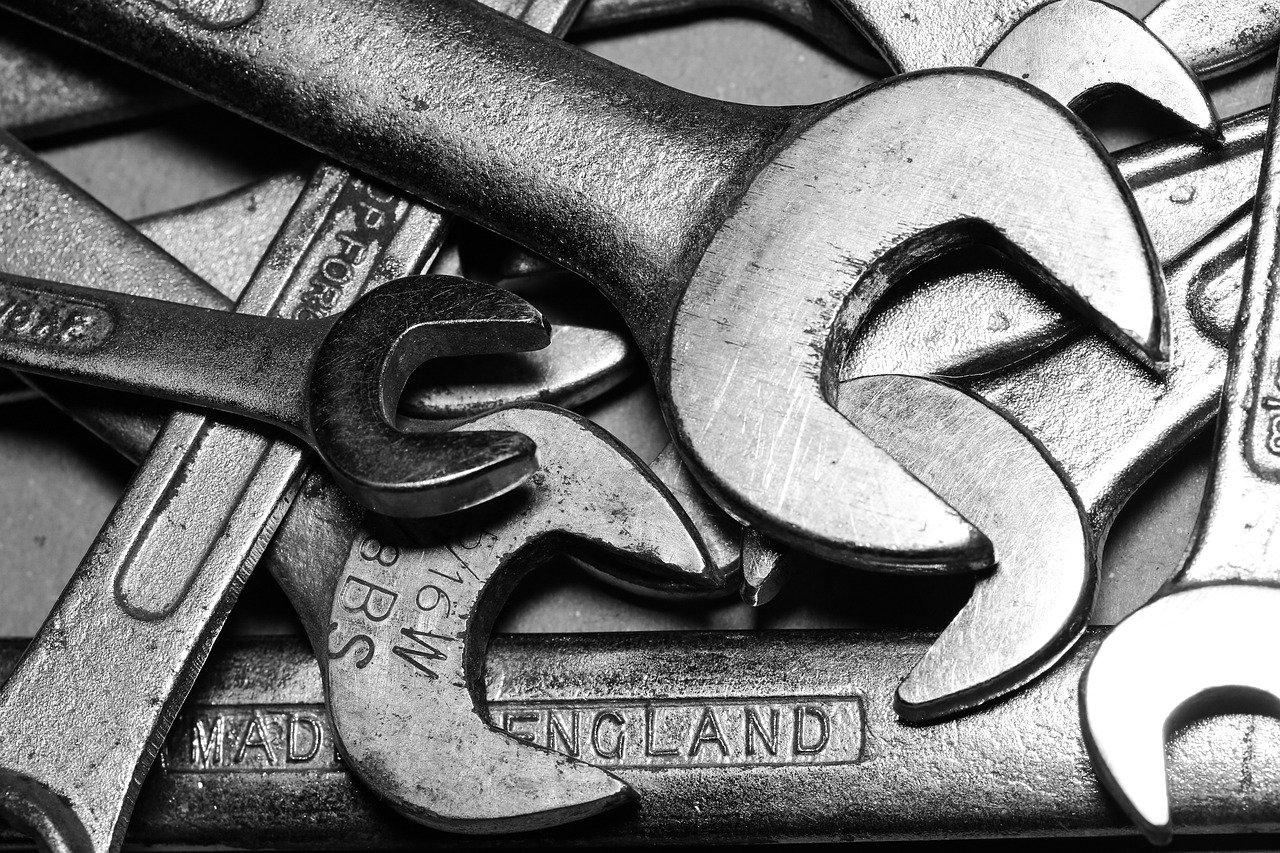The Honda Accord has long been celebrated for its reliability and longevity. This article delves into the factors that contribute to the impressive lifespan of the Accord, offering maintenance tips and insights from real owners to provide a comprehensive understanding of what makes this vehicle a top choice for many drivers.
The average lifespan of a Honda Accord typically ranges from 200,000 to 300,000 miles. This impressive range is influenced by various factors, including how well the car is maintained and the driving conditions it experiences. Many owners report that with proper care, their Accords can exceed these mileage benchmarks, making it one of the most reliable vehicles on the market.
Regular maintenance is crucial for extending the life of a Honda Accord. Following the manufacturer’s recommended service schedule can help prevent major issues and ensure the vehicle operates at its best over the years. Key maintenance tasks include:
- Oil Changes: Changing the oil every 5,000 to 7,500 miles keeps the engine lubricated and reduces wear.
- Tire Rotations: Regularly rotating tires helps maintain even wear and prolongs their lifespan.
- Brake Inspections: Keeping brakes in good condition is essential for safety and performance.
Several elements can affect how long a Honda Accord lasts, including:
- Driving Habits: Gentle driving and avoiding aggressive maneuvers can significantly enhance longevity.
- Climate: Extreme temperatures can impact vehicle components, with cold weather causing corrosion and heat affecting engine performance.
- Road Conditions: Driving on rough or poorly maintained roads can lead to increased wear and tear.
Like any vehicle, the Honda Accord can experience common issues over time. Awareness of these problems can help owners address them before they escalate:
- Transmission Problems: Some owners report issues with the transmission, which can be costly if not addressed early.
- Electrical System Failures: Problems with the electrical system can lead to various malfunctions.
- Suspension Wear: Regular inspections can help identify and address suspension issues before they become serious.
Owner testimonials reveal valuable insights into the longevity of the Honda Accord. Many long-time owners report exceeding 200,000 miles with proper maintenance. Their experiences highlight the vehicle’s reliability and durability:
- Scheduled Maintenance: Long-term owners emphasize the importance of adhering to the maintenance schedule.
- Quality Parts: Using high-quality replacement parts can make a significant difference in longevity.
When compared to other brands, the Honda Accord consistently ranks high in terms of reliability and longevity. Its reputation for durability makes it a popular choice among consumers looking for a vehicle that will last. In various studies and consumer reports, the Accord has been noted for its low repair frequency and high customer satisfaction.
In conclusion, the Honda Accord stands out as a reliable vehicle with an impressive lifespan. By following recommended maintenance practices and being mindful of driving habits, owners can maximize the longevity of their Accords, ensuring they remain dependable companions for years to come.

What is the Average Lifespan of a Honda Accord?
The Honda Accord is renowned for its durability and reliability, making it a popular choice among car enthusiasts and everyday drivers alike. Understanding the average lifespan of a Honda Accord is crucial for potential buyers and current owners who want to maximize their vehicle’s longevity. In this section, we will delve deeper into the lifespan of the Honda Accord, examining the factors that contribute to its impressive mileage and the experiences of real owners.
The average lifespan of a Honda Accord typically ranges from 200,000 to 300,000 miles. However, this range can vary significantly based on several factors, including maintenance practices, driving conditions, and individual driving habits. With proper care, many owners have reported their vehicles lasting well beyond the average, often reaching 300,000 miles or more.
- Maintenance: Regular upkeep is essential. Adhering to the manufacturer’s recommended service schedule can prevent critical issues that may shorten the vehicle’s lifespan.
- Driving Conditions: Urban driving with frequent stops can wear out parts faster than highway driving, which is generally easier on the vehicle.
- Driving Habits: Gentle driving, avoiding aggressive acceleration and hard braking, contributes to a longer lifespan.
- Climate: Extreme weather conditions can affect the vehicle’s components. For example, areas with heavy snowfall may expose the car to salt, leading to corrosion.
Owner testimonials reveal a wealth of information regarding the Honda Accord’s lifespan. Many long-time owners report that with diligent maintenance and care, their vehicles have exceeded 200,000 miles without significant issues. One owner shared, “My Accord has been my reliable companion for over a decade, and it just crossed the 250,000-mile mark!” Such stories highlight the Accord’s reputation for reliability.
To ensure your Honda Accord reaches its full potential lifespan, consider the following maintenance practices:
- Regular Oil Changes: It is recommended to change the oil every 5,000 to 7,500 miles to keep the engine lubricated and reduce wear.
- Tire Maintenance: Regular rotations and maintaining proper tire pressure can enhance performance and safety.
- Brake Inspections: Keeping an eye on brake health is vital for safety and longevity.
When compared to other vehicles in its class, the Honda Accord consistently ranks high in terms of reliability and longevity. Many competitors may offer similar features, but the Accord’s track record for lasting performance makes it a standout choice for those prioritizing durability.
In summary, the Honda Accord’s average lifespan of 200,000 to 300,000 miles is a testament to its engineering and reliability. By adhering to maintenance schedules and being mindful of driving habits, owners can significantly extend the life of their vehicles. The experiences shared by long-time Honda Accord owners further affirm that with the right care, this vehicle can be a long-lasting investment.

How Does Maintenance Affect Honda Accord Longevity?
The longevity of a Honda Accord is not merely a product of its engineering excellence; it is heavily influenced by the maintenance practices it receives throughout its life. Regular maintenance is a cornerstone of vehicle care that can significantly impact the lifespan and performance of your Accord. By adhering to recommended service schedules, owners can prevent major mechanical issues and ensure that their vehicle operates optimally over the years.
Regular maintenance is crucial for several reasons:
- Prevention of Major Issues: Routine checks can identify potential problems before they escalate, saving owners from costly repairs.
- Enhanced Performance: A well-maintained vehicle runs more efficiently, providing better fuel economy and smoother operation.
- Increased Resale Value: A history of regular maintenance can enhance the resale value of your Honda Accord, making it a more attractive option for potential buyers.
To maximize the lifespan of your Honda Accord, focus on these essential maintenance tasks:
- Regular Oil Changes: Changing the oil every 5,000 to 7,500 miles is vital for keeping the engine lubricated and reducing wear.
- Tire Maintenance: Regularly rotating tires and checking tire pressure can improve handling and extend tire life.
- Brake Inspections: Regular brake checks ensure safety and prevent more significant issues down the line.
- Fluid Checks: Regularly checking and replacing fluids, such as coolant and transmission fluid, is essential for optimal performance.
Your driving habits can greatly affect the maintenance needs of your Honda Accord:
- Aggressive Driving: Quick acceleration and hard braking can lead to increased wear on engine and brake components.
- Frequent Short Trips: Short trips can prevent the engine from reaching optimal operating temperature, leading to increased deposits and wear.
- Load Management: Carrying heavy loads can strain the vehicle, leading to premature wear, especially on suspension and brakes.
Failing to maintain your Honda Accord can have serious repercussions:
- Engine Damage: Neglecting oil changes can lead to engine sludge and eventual failure.
- Brake Failure: Ignoring brake inspections can result in reduced stopping power and increased risk of accidents.
- Decreased Fuel Efficiency: A poorly maintained vehicle can experience lower fuel efficiency, costing owners more at the pump.
Keeping track of maintenance can be simplified with the right strategies:
- Service Logs: Maintain a detailed log of all services performed, including dates and mileage.
- Manufacturer Guidelines: Follow the manufacturer’s recommended maintenance schedule, which can usually be found in the owner’s manual.
- Mobile Apps: Utilize mobile applications designed to remind you of upcoming maintenance tasks and track service history.
In conclusion, regular maintenance is a crucial factor that directly affects the longevity of your Honda Accord. By prioritizing essential maintenance tasks and being mindful of driving habits, owners can enjoy a reliable and long-lasting vehicle.
What Routine Services Should Be Performed?
Maintaining a vehicle like the Honda Accord is essential for ensuring its longevity and optimal performance. Regular routine services play a pivotal role in keeping your car running smoothly. This section delves into the vital routine services that should be performed on your Honda Accord to enhance its lifespan and reliability.
Routine services are fundamental to the health of your vehicle. They not only help in preventing significant issues but also enhance overall vehicle performance. Here are some key services to consider:
- Oil Changes: Regular oil changes are crucial for maintaining engine health. It is generally recommended to change the oil every 5,000 to 7,500 miles. Fresh oil lubricates engine components, reducing friction and wear.
- Tire Rotations: Rotating your tires every 5,000 to 7,500 miles ensures even tire wear. This practice extends the life of your tires and improves handling and safety.
- Brake Inspections: Regular brake inspections are vital for safety. It’s advisable to have your brakes checked at least once a year or whenever you notice any unusual sounds or reduced braking performance.
- Fluid Checks: Regularly checking and replacing fluids, including coolant, transmission fluid, and brake fluid, is essential for optimal vehicle performance. These fluids play critical roles in various systems within your car.
- Battery Maintenance: Inspecting the battery for corrosion and ensuring that it is securely mounted can prevent starting issues. Replacing the battery every 3 to 5 years can avoid unexpected breakdowns.
- Air Filter Replacement: Changing the air filter regularly ensures that your engine receives clean air, which is vital for efficient combustion. It’s recommended to replace the air filter every 15,000 to 30,000 miles.
Following these routine services not only helps maintain engine health but also contributes to the overall performance of your Honda Accord. Neglecting these services can lead to significant issues that may require costly repairs down the line. By adhering to a regular maintenance schedule, you can ensure that your vehicle operates at its best, thus enhancing its longevity.
Moreover, keeping detailed records of all maintenance performed can be beneficial, especially if you decide to sell your vehicle in the future. Prospective buyers often look for well-maintained cars with comprehensive service histories, which can increase resale value.
In conclusion, routine services are not just a recommendation but a necessity for anyone looking to maximize the lifespan of their Honda Accord. By prioritizing these services, you can enjoy a reliable and efficient vehicle for many years to come.
How Often Should You Change the Oil?
When it comes to maintaining your Honda Accord, one of the most crucial aspects is ensuring that the engine oil is changed regularly. This simple yet essential task can significantly impact the vehicle’s performance and longevity.
For the Honda Accord, it is recommended to change the oil every 5,000 to 7,500 miles, depending on your driving habits and the type of oil used. Regular oil changes play a vital role in keeping the engine lubricated, which in turn reduces wear and tear on engine components.
- Engine Lubrication: Fresh oil ensures that all moving parts within the engine are well-lubricated, minimizing friction and preventing overheating.
- Contaminant Removal: Over time, oil can accumulate dirt, debris, and other contaminants. Regular changes help remove these harmful particles, keeping the engine clean.
- Fuel Efficiency: A well-lubricated engine runs more smoothly, which can enhance fuel efficiency, saving you money at the pump.
- Longevity: Consistent oil changes contribute to a longer lifespan for your Honda Accord, allowing it to perform optimally for years.
Choosing the right oil for your Honda Accord is just as important as the frequency of changes. Most models recommend using synthetic oil or synthetic blend oil for optimal performance. These oils provide better protection under extreme conditions and can often extend the intervals between oil changes.
Driving conditions can greatly influence how often you should change your oil. For instance:
- Severe Conditions: If you frequently drive in stop-and-go traffic, tow heavy loads, or operate in extreme temperatures, you may need to change your oil more often, possibly closer to the 5,000-mile mark.
- Normal Conditions: If you primarily drive on highways and maintain a steady speed, you might be able to extend your oil change interval toward the 7,500-mile range.
Being proactive about oil changes can prevent serious engine issues. Here are some signs that indicate it might be time for an oil change:
- Oil Color: Fresh oil is typically a clear, amber color. If it appears dark or gritty, it’s time to change it.
- Engine Noise: If you notice increased noise or knocking sounds from the engine, it may be due to insufficient lubrication.
- Oil Pressure Light: If the oil pressure light on your dashboard illuminates, it’s a clear sign to check your oil level and quality.
If you’re considering changing your oil yourself, here’s a brief guide:
1. Gather your supplies: new oil, oil filter, wrench, oil pan, funnel, and rags.2. Warm up the engine slightly to thin the oil, making it easier to drain.3. Lift the vehicle and place it securely on jack stands.4. Remove the oil drain plug and let the old oil drain completely.5. Replace the oil filter and drain plug.6. Add new oil through the funnel.7. Start the engine and check for leaks.8. Dispose of the old oil and filter properly.
By adhering to these guidelines and maintaining a regular oil change schedule, you can ensure that your Honda Accord remains in excellent condition, providing you with reliable performance for many miles to come.

What Factors Influence the Lifespan of a Honda Accord?
The longevity of a Honda Accord is a topic of interest for many car owners and potential buyers alike. Understanding the various factors that can affect the lifespan of this popular vehicle is essential for maximizing its durability and performance. Below, we delve into the key elements that can influence how long a Honda Accord lasts.
Several critical factors can influence how long a Honda Accord lasts, including driving habits, climate, and road conditions. By understanding these elements, owners can implement strategies to maximize their vehicle’s lifespan.
Aggressive driving can significantly shorten a vehicle’s lifespan. Frequent hard accelerations, rapid braking, and high-speed driving can put undue stress on the engine and transmission. In contrast, gentle driving habits, such as smooth acceleration and gradual braking, can lead to a longer-lasting vehicle. Additionally, frequent short trips can prevent the engine from reaching its optimal operating temperature, leading to increased wear over time. Taking longer drives occasionally can help maintain engine health.
The climate in which a Honda Accord operates plays a vital role in its longevity. Extreme temperatures can affect various components of the vehicle. For instance, cold climates may lead to battery issues and increased oil thickening, while hot climates can cause engine overheating and damage to rubber components. Moreover, regions that experience heavy snowfall often use salt on roads, which can lead to corrosion of the undercarriage and other metal parts. Owners should take preventive measures, such as regular washes during winter months, to mitigate these effects.
Road conditions can also have a significant impact on the lifespan of a Honda Accord. Vehicles driven on rough, unpaved roads or in areas with frequent potholes may experience more wear and tear compared to those driven on smooth highways. Regular exposure to harsh road conditions can lead to issues with suspension, alignment, and tires. Owners should consider their typical driving environment and adjust their maintenance routines accordingly.
Regular maintenance is crucial for extending the life of any vehicle, including the Honda Accord. Following a scheduled maintenance plan can help prevent major issues from arising. Essential services include:
- Oil changes every 5,000 to 7,500 miles
- Tire rotations every 5,000 to 10,000 miles
- Brake inspections and replacements as necessary
These practices help maintain optimal performance and prevent costly repairs down the line.
Like any vehicle, the Honda Accord may face common issues that can arise over time. Some frequent problems include:
- Transmission issues
- Electrical system failures
- Suspension wear
Being aware of these potential issues can help owners take proactive measures to address them before they lead to significant damage.
Owner testimonials often highlight the reliability and durability of the Honda Accord. Many report driving their vehicles well beyond 200,000 miles with proper care. Long-time owners typically recommend adhering to scheduled maintenance and using quality parts for replacements, emphasizing that consistent care is key to achieving longevity.
In summary, the lifespan of a Honda Accord is influenced by a multitude of factors, including driving habits, climate, road conditions, and maintenance practices. By understanding and addressing these elements, owners can significantly enhance the durability and performance of their vehicles.
How Do Driving Habits Impact Longevity?
Driving habits play a crucial role in determining the lifespan of a vehicle, particularly for models like the Honda Accord. Understanding how your driving style can affect your car’s longevity is vital for any owner looking to maximize their investment.
Aggressive driving, characterized by rapid acceleration, hard braking, and high-speed maneuvers, can significantly shorten the lifespan of a Honda Accord. Such behavior leads to increased wear and tear on critical components such as the engine, brakes, and transmission. For instance, frequent hard braking can cause premature wear on brake pads and rotors, necessitating more frequent replacements.
Frequent short trips can also negatively impact the longevity of your Honda Accord. When a vehicle is driven for short distances, the engine may not reach its optimal operating temperature. This can result in incomplete combustion and the accumulation of carbon deposits, which can lead to engine inefficiency over time. Additionally, short trips do not allow the oil to fully circulate, which is essential for lubricating engine components.
Carrying heavy loads can place significant strain on a Honda Accord’s suspension and drivetrain. Overloading the vehicle can lead to premature wear on these systems, as they are not designed to handle excessive weight over extended periods. It is crucial to adhere to the manufacturer’s recommended weight limits to avoid potential damage.
In contrast, adopting a gentle driving style can greatly enhance the longevity of your Honda Accord. Smooth acceleration and braking not only improve fuel efficiency but also reduce stress on the vehicle’s components. By driving at moderate speeds and avoiding sudden maneuvers, you can maintain better control of your vehicle while extending its lifespan.
Regular long trips can be beneficial for your Honda Accord as they allow the engine to reach its optimal operating temperature, promoting better fuel combustion and reducing the risk of carbon buildup. Long drives also provide the opportunity for the oil to circulate effectively, ensuring that all engine parts are adequately lubricated. This practice can lead to a healthier engine and overall vehicle performance.
- Regular Oil Changes: Changing the oil at recommended intervals helps maintain engine health.
- Tire Maintenance: Keeping tires properly inflated and rotated can improve handling and fuel efficiency.
- Brake Inspections: Regularly checking brake components ensures safety and longevity.
In conclusion, driving habits significantly impact the lifespan of a Honda Accord. By avoiding aggressive driving, minimizing frequent short trips, and being mindful of load limits, owners can help ensure their vehicles remain reliable for years to come. Gentle driving and regular long trips not only enhance performance but also contribute to a longer-lasting vehicle. Owners who prioritize these habits, along with regular maintenance, can expect to enjoy their Honda Accord well into the high mileage ranges, thus maximizing their investment.
Does Climate Affect Vehicle Lifespan?
When considering the longevity of vehicles, understanding the impact of climate and weather conditions is crucial. Extreme temperatures and varying weather patterns can significantly influence the performance and lifespan of your vehicle. This article delves into how such conditions affect different components of vehicles, particularly focusing on the Honda Accord.
Extreme temperatures can lead to a variety of issues in vehicles. In cold climates, the risk of components freezing increases. Fluids can thicken, making it harder for the engine to operate efficiently. Additionally, battery performance can decline, leading to difficulties in starting the vehicle. Conversely, in hot climates, excessive heat can cause engine overheating, which may lead to severe engine damage if not addressed promptly.
High humidity levels can exacerbate the effects of extreme temperatures. Moisture can promote corrosion on metal components, particularly in areas where salt is used on roads during winter months. This corrosion can lead to significant issues, such as frame rusting and brake line deterioration. Regular inspections and maintenance can help mitigate these risks.
During winter, many regions apply salt to roads to improve traction. While this is beneficial for driving safety, it poses a serious threat to vehicle integrity. Salt can cause corrosion on various metal parts, including the undercarriage, brake components, and exhaust systems. Owners in snowy regions should consider washing their vehicles regularly to remove salt buildup and protect against corrosion.
Excessive heat can significantly impact engine performance. In hot weather, the engine can overheat if the cooling system is not functioning optimally. The coolant may evaporate faster, and the oil can become less effective at lubricating engine parts. Regularly checking and maintaining the cooling system and oil levels is essential for preventing overheating.
- Regular Inspections: Schedule routine check-ups to ensure all components are functioning correctly.
- Fluid Changes: Change oil and coolant regularly to maintain optimal performance.
- Rust Protection: Apply anti-corrosion treatments, especially if you live in an area with heavy snowfall.
- Battery Checks: Test battery health, particularly in extreme temperatures, to avoid starting issues.
Being proactive is key to extending the lifespan of your vehicle in extreme climates. Owners should be vigilant for signs of wear and tear, such as:
- Unusual Noises: Listen for any strange sounds that could indicate mechanical issues.
- Fluid Leaks: Check for any leaks under the vehicle that could signify a problem.
- Warning Lights: Pay attention to dashboard warning lights and address them promptly.
In conclusion, understanding how climate affects vehicle lifespan is essential for Honda Accord owners and all vehicle enthusiasts. By taking preventive measures and conducting regular maintenance, you can help ensure that your vehicle remains reliable and performs well, regardless of the weather conditions.

What Are Common Issues That Affect Honda Accord Lifespan?
The Honda Accord is renowned for its reliability and longevity, but like any vehicle, it is not without its share of potential issues. Understanding these common problems can empower owners to take proactive measures, ensuring their vehicle remains in optimal condition for years to come. In this section, we will explore the common issues that affect the lifespan of the Honda Accord, providing insights and practical advice for owners.
As with any vehicle, the Honda Accord may experience certain common issues over time. Identifying these problems early can prevent them from escalating into significant repairs, ultimately extending the lifespan of the vehicle. Below are some of the most frequently reported issues:
- Transmission Problems: One of the most commonly reported issues among Honda Accord owners is related to the transmission. Symptoms may include slipping gears, delayed shifting, or unusual noises. Regular transmission fluid changes and inspections can help mitigate these problems.
- Electrical System Failures: Issues with the electrical system, such as malfunctioning power windows, dead batteries, or faulty alternators, can arise. Keeping the battery terminals clean and ensuring regular checks can help prevent electrical failures.
- Suspension Wear: Over time, the suspension components of the Honda Accord may wear out, leading to a rougher ride and decreased handling. Regular inspections and timely replacements of shocks and struts can help maintain ride quality.
- Engine Oil Leaks: Engine oil leaks can occur due to wear and tear on gaskets and seals. Regularly checking oil levels and monitoring for oil spots under the vehicle can help catch leaks early.
- Brake Issues: Brake pads and rotors are subject to wear and should be inspected regularly. Squeaking sounds or a spongy brake pedal can indicate that maintenance is needed.
Identifying potential problems early can save Honda Accord owners from costly repairs and extend the lifespan of their vehicle. Here are some effective strategies:
- Regular Inspections: Schedule routine inspections with a trusted mechanic. This proactive approach can help identify wear and tear before they develop into major issues.
- Monitor Warning Lights: Pay close attention to dashboard warning lights. Ignoring these signals can lead to serious damage, so addressing them promptly is crucial.
- Listen for Unusual Noises: Any strange sounds while driving should not be overlooked. Investigate these noises to determine if they are indicative of a larger problem.
- Check Fluid Levels: Regularly check all fluid levels, including oil, coolant, and transmission fluid. Low fluid levels can lead to severe engine damage.
Preventative maintenance is key to avoiding common issues that can affect the Honda Accord’s lifespan. Here are some essential tips:
- Follow the Maintenance Schedule: Adhere to the manufacturer’s recommended maintenance schedule for oil changes, filter replacements, and inspections.
- Use Quality Parts: When replacing components, opt for high-quality parts that meet or exceed OEM specifications to ensure reliability.
- Drive Sensibly: Avoid aggressive driving habits, as they can lead to premature wear on various vehicle components.
- Protect Against Corrosion: If you live in a region with harsh winters, consider rust-proofing your vehicle to protect it from road salt and moisture.
By being aware of these common issues and implementing preventative measures, Honda Accord owners can significantly enhance the longevity of their vehicles. Regular maintenance and attention to detail will not only improve performance but also ensure a smoother and safer driving experience.
What Are the Most Frequent Problems Reported?
The Honda Accord is renowned for its reliability and longevity, but like any vehicle, it can experience issues over time. Understanding these common problems is crucial for owners aiming to maintain their vehicle’s performance and lifespan. In this section, we will delve into the frequent issues reported by Honda Accord owners and how to address them effectively.
Honda Accord owners often encounter several recurring issues that can impact the vehicle’s performance. Being aware of these problems can help you take proactive steps to mitigate them and avoid expensive repairs down the line.
- Transmission Problems: One of the most common issues reported is related to the transmission. Symptoms may include slipping gears, delayed shifting, or unusual noises. Regular transmission fluid changes and addressing any warning signs early can help prolong the life of the transmission.
- Electrical System Failures: Electrical problems can manifest in various ways, such as malfunctioning lights, issues with the battery, or problems with the starting system. Conducting routine checks on the battery and electrical components can assist in identifying issues before they escalate.
- Suspension Wear: Over time, the suspension system may experience wear and tear, leading to a bumpy ride or difficulty in handling. Regular inspections and timely replacements of worn-out components, such as shocks and struts, are essential for maintaining ride quality.
- Brake Issues: Brake problems can range from worn brake pads to issues with the brake system itself. Regular brake inspections and timely replacements can ensure safety and prevent further damage.
- Engine Problems: Some owners report issues with engine performance, including rough idling or reduced power. Keeping up with routine maintenance, such as oil changes and air filter replacements, can help maintain engine health.
Identifying potential problems early can save you time and money. Here are some practical tips:
- Regular Inspections: Schedule regular inspections with a trusted mechanic to catch any issues before they become serious.
- Monitor Warning Lights: Pay attention to dashboard warning lights. If a light appears, investigate the issue promptly.
- Listen for Unusual Noises: Be alert to any strange sounds while driving, as they can indicate underlying problems.
- Check Fluid Levels: Regularly check and maintain proper fluid levels to ensure optimal vehicle performance.
By staying informed about these common issues and implementing preventative measures, Honda Accord owners can extend the lifespan of their vehicles and enhance overall reliability. Remember, proactive maintenance is key to avoiding costly repairs and ensuring a smooth driving experience.
How Can You Identify Potential Problems Early?
Identifying potential problems early in your Honda Accord is crucial for maintaining its performance and longevity. Regular inspections and being vigilant about warning lights can significantly aid in catching issues before they escalate into costly repairs. This proactive approach not only saves money but also ensures your vehicle remains reliable for years to come.
Routine inspections play a vital role in vehicle maintenance. They allow you to assess various components, including the engine, brakes, and tires, ensuring everything is functioning correctly. By conducting these checks, you can:
- Identify Wear and Tear: Regular inspections help spot signs of wear on critical parts, which can be addressed before they lead to major failures.
- Ensure Safety: Checking brakes and tires can prevent accidents caused by mechanical failures.
- Maintain Performance: Keeping your vehicle in top shape ensures it runs efficiently, enhancing fuel economy and overall performance.
Your Honda Accord is equipped with various warning lights designed to alert you to potential issues. Understanding what these lights mean is essential:
- Check Engine Light: This light indicates a range of issues, from minor to serious. If it lights up, it’s crucial to get it checked as soon as possible.
- Oil Pressure Light: This warns of low oil pressure, which can lead to severe engine damage if not addressed promptly.
- Battery Warning Light: If this light appears, it could mean your battery or alternator is failing, requiring immediate attention.
It is advisable to perform a thorough inspection at least every 6 months or 5,000 miles, whichever comes first. Additionally, after long trips or if you notice any unusual sounds or behaviors from your vehicle, a more immediate check is warranted. This routine will help you:
- Catch Problems Early: Frequent checks increase the likelihood of identifying issues before they worsen.
- Plan for Repairs: Knowing the condition of your vehicle allows you to budget for necessary repairs over time.
A proactive approach not only enhances the longevity of your Honda Accord but also improves your driving experience. Here are some benefits:
- Cost Savings: Early detection of issues often results in less expensive repairs compared to addressing major problems later.
- Increased Reliability: A well-maintained vehicle is less likely to break down, providing peace of mind during your travels.
- Higher Resale Value: Vehicles that are regularly maintained tend to have higher resale values, making them more attractive to buyers.
In conclusion, being proactive about vehicle inspections and monitoring warning lights is essential for any Honda Accord owner. By taking these steps, you can ensure your vehicle remains in excellent condition, ultimately leading to a longer lifespan and a more enjoyable driving experience.

What Real Owners Say About Honda Accord Longevity?
The Honda Accord has long been celebrated for its durability and reliability, and the experiences of real owners provide a wealth of insights into its longevity. Owner testimonials reveal that many drivers have successfully pushed their Accords beyond 200,000 miles with proper maintenance and care. This impressive lifespan is not just a number; it reflects the vehicle’s engineering and the commitment of its owners to uphold maintenance standards.
Many Honda Accord owners share stories of their vehicles lasting well into the 200,000 to 300,000-mile range. For instance, one owner reported hitting the 250,000-mile mark without any significant issues, attributing this longevity to regular oil changes and adherence to the manufacturer’s maintenance schedule. These testimonials highlight the importance of routine care in achieving such remarkable mileage.
Owners frequently emphasize that maintenance practices play a crucial role in extending the life of their Honda Accords. Regular services such as:
- Oil changes every 5,000 to 7,500 miles
- Tire rotations
- Brake inspections
These practices help ensure that the engine remains in optimal condition, reducing wear and tear over time. One long-time owner noted that investing in quality parts during replacements also contributes significantly to longevity.
While the Honda Accord is known for its reliability, some owners report common issues that can arise as the vehicle ages. These include:
- Transmission problems
- Electrical system failures
- Suspension wear
Being aware of these potential issues allows owners to take proactive measures, such as regular inspections and addressing warning lights promptly. One owner mentioned that early detection of minor issues prevented costly repairs down the line.
Long-time Honda Accord owners often recommend sticking to a strict maintenance schedule and using high-quality replacement parts. They stress that following the manufacturer’s guidelines is vital for achieving longevity. One owner shared that their Accord, after 15 years of service, still runs smoothly, largely due to consistent care and attention to detail.
When comparing the Honda Accord to other brands, many owners express a strong preference for the Accord due to its reputation for reliability and longevity. Testimonials frequently highlight that while other vehicles may require more frequent repairs, the Accord tends to be more dependable over time. This reputation solidifies the Accord’s position as a top choice for consumers seeking a long-lasting vehicle.
In summary, the experiences of Honda Accord owners underline the vehicle’s remarkable longevity. With proper maintenance, many have exceeded 200,000 miles, showcasing the Accord’s durability. By following recommended maintenance practices and addressing issues promptly, owners can enjoy their vehicles for many years, making the Honda Accord a wise investment in reliability.
What Do Long-Time Owners Recommend?
The Honda Accord is renowned for its longevity and reliability, making it a favorite among car enthusiasts and everyday drivers alike. Long-time owners of the Accord are often the best source of advice when it comes to maintaining your vehicle for the long haul. Their experiences can provide valuable insights into best practices for care and maintenance, ensuring that your Honda Accord remains on the road for many years.
According to numerous long-time Honda Accord owners, adhering to a strict maintenance schedule is crucial. Regular maintenance not only keeps the vehicle running smoothly but also prevents minor issues from escalating into major problems. Here are some of the key recommendations from seasoned owners:
- Follow the Manufacturer’s Maintenance Schedule: Owners emphasize the importance of sticking to the recommended service intervals outlined in the owner’s manual. This includes regular oil changes, brake inspections, and fluid replacements.
- Use Quality Replacement Parts: When it comes to replacing parts, long-time owners advise opting for OEM (Original Equipment Manufacturer) parts or high-quality aftermarket components. Using inferior parts can lead to premature wear and failures.
- Keep an Eye on Fluid Levels: Regularly checking and maintaining fluid levels—such as engine oil, coolant, and transmission fluid—can help prevent overheating and other issues that may shorten the vehicle’s lifespan.
- Pay Attention to Warning Lights: Many owners stress the importance of addressing dashboard warning lights immediately. Ignoring these alerts can lead to more significant problems down the road.
- Practice Gentle Driving Habits: Long-time Accord owners recommend avoiding aggressive driving, as it can put extra strain on the engine and transmission. Smooth acceleration and deceleration can greatly enhance the vehicle’s longevity.
Furthermore, many owners suggest maintaining a clean vehicle, both inside and out. Regular washing and waxing can protect the paint and body from rust and corrosion, particularly in areas with harsh weather conditions. Inside, keeping the cabin free from debris and spills can help preserve the interior materials.
In addition to the recommendations mentioned above, long-time Honda Accord owners often highlight specific maintenance practices that can significantly impact the vehicle’s lifespan:
- Regular Tire Maintenance: Rotating tires and maintaining proper air pressure can extend tire life and improve fuel efficiency. This practice also contributes to safer handling and braking.
- Brake System Checks: Regular inspections of the brake system can prevent safety issues. Long-term owners recommend replacing brake pads and rotors as needed, rather than waiting until they are worn out.
- Battery Maintenance: Checking the battery’s condition and cleaning terminals can prevent unexpected breakdowns. Many owners recommend replacing the battery every 3-5 years, depending on usage and climate.
By following these recommendations, Honda Accord owners can ensure that their vehicles remain reliable and functional for many miles. Real-world experiences shared by long-time owners highlight that with proper care, the Honda Accord can exceed 200,000 miles, proving its reputation for durability.
In summary, the advice from long-time Honda Accord owners underscores the significance of scheduled maintenance and the use of quality parts. By taking proactive steps and being attentive to the vehicle’s needs, owners can enjoy the benefits of a long-lasting and dependable vehicle.
How Do Honda Accords Compare to Other Brands?
The Honda Accord has earned a stellar reputation in the automotive industry, particularly for its reliability and longevity. When it comes to comparing the Honda Accord to other brands, it consistently stands out as a top choice for consumers seeking a durable vehicle. This article delves into the reasons behind this remarkable reputation and how the Accord stacks up against its competitors.
One of the primary reasons the Honda Accord is seen as a reliable vehicle is its engineering quality. Honda has a long history of producing vehicles that can withstand the test of time. Many owners report their Accords lasting well beyond 200,000 miles with proper maintenance. This durability is a significant factor that sets the Accord apart from many other brands.
When placed alongside competitors like the Toyota Camry, Ford Fusion, and Nissan Altima, the Honda Accord often comes out on top in terms of longevity. Research indicates that while many sedans can last between 150,000 to 200,000 miles, the Accord frequently exceeds these figures, with many drivers reaching upwards of 300,000 miles with diligent care.
Another aspect that enhances the Honda Accord’s appeal is its affordable maintenance costs. Compared to other brands, the Accord’s parts are readily available and reasonably priced. For instance, routine services such as oil changes and brake replacements tend to be less expensive than those for luxury brands. This affordability contributes to the overall value of owning a Honda Accord.
Owner testimonials often highlight the Accord’s reliability. Many long-time owners express satisfaction with their vehicles, citing minimal issues over the years. In fact, numerous forums and reviews indicate that the Accord maintains a high resale value, further solidifying its position as a smart investment in the long run.
- Toyota Camry: Both vehicles are known for reliability, but the Accord often offers a more engaging driving experience.
- Ford Fusion: While the Fusion has a stylish design, it typically doesn’t match the Accord’s longevity.
- Nissan Altima: The Altima has been praised for its comfort, but the Accord generally outperforms it in terms of durability.
Experts consistently rate the Honda Accord highly, particularly in categories related to reliability and safety. Organizations like J.D. Power and Consumer Reports frequently place the Accord at the top of their reliability rankings. This recognition comes from rigorous testing and analysis, reinforcing the notion that the Accord is a dependable choice.
Honda’s overall reputation for quality and reliability significantly influences the perception of the Accord. The brand’s commitment to engineering excellence ensures that the Accord is built to last, which is a primary reason many consumers choose it over other brands. This trust in the brand translates into a loyal customer base that values longevity and performance.
In summary, the Honda Accord’s consistent ranking in terms of reliability and longevity makes it a top contender when compared to other brands. Its engineering quality, affordable maintenance, and positive owner experiences contribute to its reputation as a durable vehicle, making it a popular choice among consumers.
Frequently Asked Questions
- How long can I expect my Honda Accord to last?
With proper maintenance, a Honda Accord can typically last between 200,000 to 300,000 miles. This impressive lifespan makes it a favorite among drivers looking for reliability.
- What maintenance should I prioritize for my Honda Accord?
Regular oil changes, tire rotations, and brake inspections are crucial. Keeping up with these services ensures your Accord runs smoothly and can significantly extend its life.
- How often should I change the oil in my Honda Accord?
It’s generally recommended to change the oil every 5,000 to 7,500 miles. This practice helps keep your engine lubricated, reducing wear and tear over time.
- What driving habits can affect my Accord’s lifespan?
Aggressive driving and frequent short trips can shorten your vehicle’s life. Gentle driving and longer trips are better for maintaining your Accord’s longevity.
- Are there common issues I should watch for?
Yes, common problems include transmission issues and electrical system failures. Being proactive about inspections can help you catch these issues early.
- What do long-time Honda Accord owners recommend?
Many experienced owners suggest sticking to the maintenance schedule and using quality parts for repairs. This advice is key to achieving a long-lasting vehicle.



